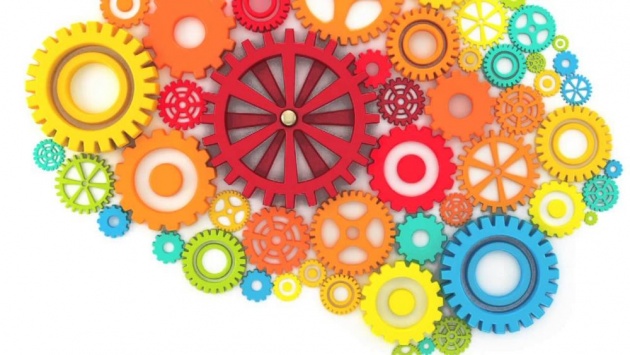10 Suggestions for Maintaining Your Memory
Try the following 10 strategies to protect your memory and keep it strong.
1) Focus on Attending
If you are listening to someone, repeat or paraphrase what they have said along with writing it down, if possible. Try different ways of attending, this helps make new neural connections. In a Dale Carnegie course, the manual suggests that you shake a person’s hand and repeat their name upon meeting. Now with Skype and other digital media this can be impossible, but you can still repeat information out loud and take notes. There is research on whether typing information into a computer or the actual act of writing on a piece of paper helps the attention process along with proper storage. It is important to have undivided attention when you are focused on the new information. The Chinese Ideogram for “To Listen” is eyes, ears, undivided attention and a heart. If you are thinking, when someone is presenting information, you often are not listening to what is presented. Also, it is important to keep the task within your ability or understanding. It is extremely hard to properly process and store information when you don’t have a good understanding of that information or meaning of what is being said.
2) Learn Novel ways of Thinking
Use it or lose it. Do crossword puzzles help? Yes. Does Luminosity and similar websites help? Yes. However, if all you ever do is crossword puzzles eventually other areas of the brain and brain connections will die off. It’s important to have a balanced life of conversations with new friends, new routines, and taking different routes when doing your morning run or bicycle ride. As mentioned above, those connections you do use will get stronger, however if you aren’t doing something novel, the connections you’re not using will die off. This is especially true if your brain injury is from disease and/or trauma. If you had a sport-related concussion and you continue on the same path of recovery, the areas that are damaged due to the TBI may never recover. You need to use your brain as much as possible in a variety of ways.
3) Stress Reduction
For many, this is one of the hardest things to do. There is extensive research on how stress affects your ability to attend, concentrate, store and retrieve information. Add to this a disease and/or trauma and your brain just shuts down. Heart rate breathing is extremely important. The heart to brain communication system is through the vagus nerve and the sympathetic afferents. Through controlling your breath, you are able to have control of your brain and higher brain centers that influence registration, storage and retrieval. TheemWave2(link is external) is a method to help you learn heart rate breathing. This method is not going to make the baby stop crying or make the leaky roof go away. Rather, it is going to give you a tool to help you cope better, which reduces the stress, thus allowing you to attend, concentrate, store and retrieve information more effectively.
4) Nutrition
What you eat affects your brain. Eating an anti-inflammatory diet that is high in protein andOmega 3 really makes a difference. I go into great details about the foods to eat and the foods to avoid my book, Coping with Concussion and Mild Traumatic Brain Injury(link is external). Also, in the Brain Health Recipes(link is external) portion of my blog there is a wide variety of recipes specifically to help your brain health and your memory. Lastly, as part of our integrativeteam, we have an amazing nutritional educator.
5) Restorative Sleep
This area is extremely important, which is why I wrote a previous blog on sleep and devoted an entire chapter to sleep in my book. It is essential that you go to bed at the same time each night and wake up at the same time, if possible. Do not have sound machines or the radio or TV going during the night. Sleep is the first area that is most effected by disease, trauma and/or neglect related memory problems. Rescue Remedy sleep is very effective, as is taking a soothing bath along with the heart rate breathing that helps reduce the stress in your life so you can attain restorative sleep.
6) Exercise
This is a lot easier than you think. Park a block away from your office. Walk up the stairs instead of taking the elevator. Buy a big medicine ball and bounce on it while watching TV or a movie. Try isometric exercise. Try Tai Chi exercises. Move for a least 20 minutes a day!
7) Be Careful with Prescription Medication
If you had a brain injury, do NOT take any medication that will affect your central nervous system (CNS) unless it is LIFE or DEATH. Every medication has some side-effects. Only use the medication, if and only if, the positive effects outweigh the negative. If you are in severe pain and need to take a medication for your pain, be aware it will affect your memory. There are major drug categories that will affect your memory including sleep aides, steroids, antiepileptic drugs, tranquilizers, anti-anxiety drugs, and muscle relaxants to name a few. Again, be sure to use prescription medication and even some herbal remedies with caution.
8) Alcohol, Wine, Beer and Drugs
This is a no brainersm! Use any of these, especially together, and lose your memory. Period. This is especially true if you have had a form of disease or trauma to the brain. So, this is your choice. Now I’m not saying I never have a drink of wine on a Saturday night, but if I do, I understand the consequences and do not plan to have a consultation or see a patient on Sunday.
9) Stop Smoking
With a brain injury there is a decrease of oxygen to the brain. When you smoke there is even less.
10) Reduce your Caffeine
This is a mixed area, because for some people with memory problems caffeine can actually help in the short term to attend or focus, yet in the long run it can cause adrenal exhaustion, which effects retrieval of information.





